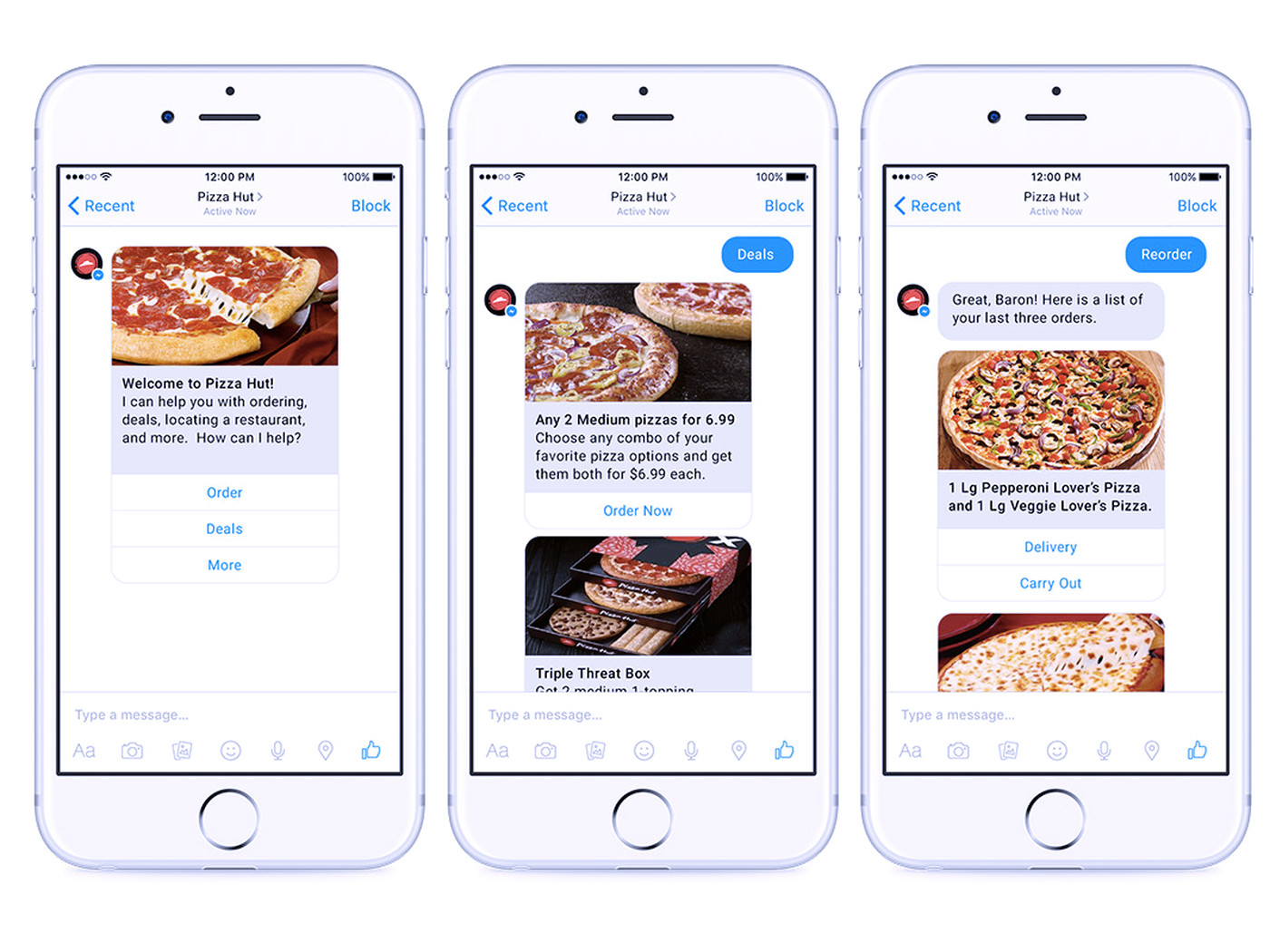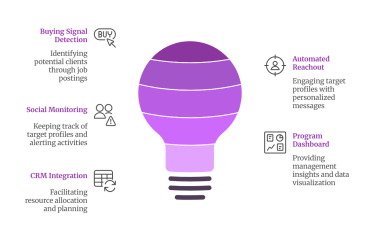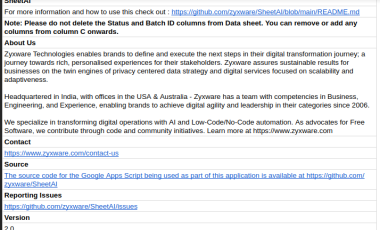Using Artificial Intelligence for Marketing
From Facebook’s Lookalike Audience to Google’s RankBrain, artificial intelligence (AI) is a huge part of our lives already. When AI was being introduced, like all new technologies, there was a lot of skepticism and distrust surrounding it. Today, it has seeped into our everyday life so much, we just don’t realize it.
From showing you relevant ads to personalizing your shopping experience, everything is AI. The movies that Netflix recommends to you based on your viewing patterns - AI again. Google Maps? AI. Product recommendations on Amazon? AI. The spam filters that protect you from the generosity of a Nigerian prince who wants to send you $500 million? AI.
Type AI and any industry’s name on Google, you will find hundreds of use cases for each of them. Marketing is one such area where artificial intelligence has created a significant impact. There is a lot of noise today as every other company is trying to grab a slice of its target market. They are doing everything in their power to create a phenomenal experience for their prospective customers. With advancements in AI, there is so much of it that you can use for your business.
Here is a small definition of AI, it is a subset of computer science and it creates software that is capable of learning and improving its performance over time. Before AI, computers used to gather tonnes of data, but its utility stopped there. The onus was on humans to figure out what to do with the data. With AI’s advanced algorithm, by just using data, it can predict customer behavior, track their movement, offer hyper-personalized service, predict demographic compatibility, etc.
How are Companies Benefiting from AI for their Marketing
With AI’s algorithms growing stronger by the day, businesses are aggressively expanding their role in their marketing. It goes through millions of data sets to unearth patterns and provide insights that can improve your marketing performance.
#1 Get Deep Understanding of Customers:
Understanding what your customers truly want is the holy grail for most businesses. Every business wants to know the exact needs so that they can offer them too. Finding buyer personas is the first step to identify who your prospective customers are and what makes them yearn for a product similar to yours.
Live Persona by Delve AI is an AI-based tool whose algorithm helps you extract personas automatically from your Google Analytics data. It enriches web analytics data with more than 20 sources/models to give you a deep context using which it offers customer insights. The Live Persona tool even segments the audience for your benefit. Another advantage is that it automatically updates the personas so that your targeting is always on point.
#2 Create Conversational Experiences:
Chatbots are a standalone application that is used in place of a customer success agent for quick responses that don’t require a human on the other side. By populating many resources, users could easily gain access to resources which the chatbot provides, based on the conversation path the user creates. Add artificial intelligence on top of the chatbot and it can totally eliminate the requirement of a live agent.
The AI will learn from previous interactions and the resources already available to predict the answers accurately. It saves a lot of time for the customer too as they are looking for a quick resolution of their queries. One such use case is Domino’s Pizza which uses Facebook Messenger and chatbot AI technology to allow its customers to order pizza from it. It even sends them timely updates about the whereabouts of the product and delivery time.

#3 Personalization:
Did you know that Netflix’s recommendation engine saves the company $1 billion every year? The company believes that a typical Netflix user will lose interest after 60 to 90 seconds of scanning. Unless the user finds something interesting, the risk of the user leaving the service increases.
The key to personalization is understanding the preferences of your customers. AI wades through your history, viewing patterns, time spent on different programs to come up with highly personalized suggestions. Spotify’s personalized playlist, Amazon’s ‘item-based collaborative filtering’ algorithm are all examples of AI-powered personalization that provides delightful experiences for customers.
Nike launched a “create your own sneakers in-store” in 2017 where customers could put on blank Nike Presto X sneakers and add colors and graphics. With the help of augmented reality and projection systems, the design is displayed on the blank shoes. The design is printed and made available to the customer in less than 90 seconds.

In 2019, Amazon launched Personalize- it brings the same machine learning technology used by Amazon.com to everyone. This means that developers can build applications for real-time personalized recommendations for a wide range of use-cases, even without machine learning expertise.
#4 Content Generation:
Content is the bedrock of marketing. Without the written word, marketers do not have anything to distribute. Content generation is a tedious process that requires a specialist writer and finding someone with domain expertise is a big task. What if an AI system could come up with copy for your website and other types of content to persuade customers? A tool called Persado does that exactly.
As of now, Persado helps businesses with email subject line creation. Persado’s AI machine “applies its understanding of language to a marketing brief from your team, creating the best message to speak to your customers in your brand’s voice across all channels.” Another brand that helps with AI-powered copywriting is Phrasee.
#5 Competitor Insights:
Understanding your competitors’ users and their marketing strategies is as important as learning about your customers. By learning about your competitors, you will be able to discover trends, spot gaps in the market, refine your ideal customer profile, and create content better suited for your target market.
Delve AI’s Competitor Persona helps you create personas automatically for any competitor website domain. You can get unique business-building ideas based on what your competitors are doing. Comparing your marketing strategies against theirs will give you a benchmark. Competitor Persona uses competitor intelligence data to find content, advertising, and partnership opportunities that will work specifically for your business.
Without a tool like this, you might have had to spend countless hours manually poring through every page of your competitor’s websites and will miss out on behavioral insights.
#6 Insights from Social Media:
Every mention of your product by a customer on social media is a goldmine that many businesses find difficult to monitor. AI makes it possible to process real-time data collated from social media users. It helps detect meaningful patterns in conversations about your brand- like seeing if there is a shift in consumer attitude, changing customer perception based on a recent incident, customer opinion about a price increase, or even a public relations crisis.
Consumer goods giant Unilever developed a range of cereal-flavored ice creams for its Ben & Jerry brand based on social media insights. It sourced data from a range of channels including social media, CRM, and traditional marketing research. Using this, Unilever discovered the link between ice cream and breakfast. It realized that there were at least 50 songs with lyrics that talk about having ice cream for breakfast.
Tools like Synthesio, Lately, etc., help businesses with social listening. The traditional method to understand what customers think about your business would have been to conduct focus groups, interviews, surveys, etc. But these AI tools can collate, structure and analyze millions of data sets from social media posts. Since the sample size is huge, there is no issue of statistical unreliability or bias.
Using AI for Social Listening will Answer Questions Like The Ones Below:
- What is the opinion of people about my brand?
- Are customers happy paying the present rates for our services?
- What are my potential customers/customers talking about my competitor?
- What are they looking for from a product similar to ours?
Answers to the questions will offer significant insights that can help you make business-critical decisions.
#7 Predictive Marketing:
As irrational as we might be, we humans make choices based on a behavioral pattern and logic that is predictable. We have our own ways, right from the brands we use or the products we purchase. AI takes advantage of this to predict what, where, when, and how customers would be buying from.
By going beyond historical data, the AI will predict how businesses can leverage our predictability to make customers buy from your business. Predicting customer behavior, lead scoring based on a set of attributes, text analysis, sentimental analysis, etc., your understanding of what your prospective customer wants gets refined. Now it is possible for you to provide them the right product to the right prospect, that too at the right time and by using the right channel, that’s how powerful it is.
Conclusion:
With the increasing use of AI in our lives, the expectation of customers from businesses has also risen dramatically. Businesses also should be geared towards doing everything in their power to leverage technology to provide an intuitive experience to their customers. Being an early adopter of technology can put you ahead of your business peers by miles. Do not wait for an industry-wide adoption before you dip your toes in AI.
Have you implemented AI as a part of your marketing efforts? If the answer is no, what’s stopping you from doing so?
This article was originally created by Delve AI, and has been reposted with permission from the author.



